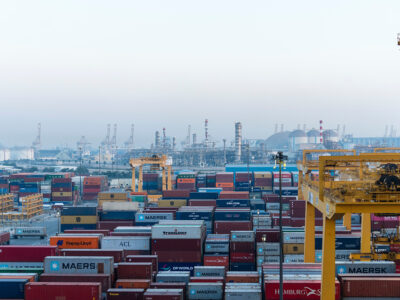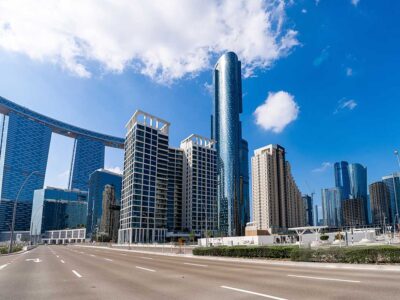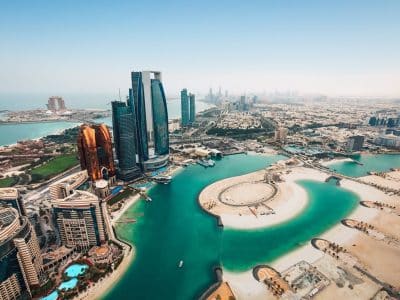Watching the footage of world leaders descending upon Kazan this week, I couldn’t help but reflect on the irony of the moment. The West’s grand strategy to isolate Vladimir Putin has accomplished precisely the opposite of what it intended.
As over 30 heads of state gather for the BRICS summit in Russia, we’re witnessing not the isolation of a pariah state, but the emergence of a new global coalition that challenges the very foundation of Western diplomatic power.
The numbers tell a compelling story. BRICS nations now represent 45 per cent of the world’s population and control nearly 30 per cent of the global economy. With the recent expansion to include Egypt, Ethiopia, Iran, Saudi Arabia, and the United Arab Emirates, the bloc has transformed from what was once dismissed as a mere acronym into a formidable bloc that’s reshaping global dynamics.
The symbolism of this week’s dual summits couldn’t be more striking. As the IMF’s economic establishment gathers in Washington to discuss mounting global debt and recession fears, the BRICS nations are meeting in Kazan to plan for an alternative economic future. It’s a tale of two cities that perfectly captures our pivotal moment: the old guard of global finance convening in the traditional halls of power, while a rising coalition of emerging economies plots a multipolar financial order. The coincidence of timing feels less like chance and more like a changing of the guard playing out in real-time.
The irony is sharp. Just last year, Putin couldn’t even attend the BRICS summit in Johannesburg, constrained by an ICC arrest warrant that would have forced South Africa to detain him. Now, he’s hosting one of the largest international gatherings Russia has seen since its invasion of Ukraine. The transformation is remarkable, not just in its speed but in its implications for global diplomacy.
BRICS’ strategic economic pivot
But let’s dig deeper than the surface-level optics. My conversations with some economic analysts this week revealed a more complex picture. The BRICS summit represents a calculated pivot by emerging powers to reduce their vulnerability to Western economic weapons.
The most significant development isn’t the photo ops of Putin with Xi Jinping or Narendra Modi, but the quiet revolution happening in the financial interplay between nations. BRICS members are actively working to create alternative payment systems that bypass the US dollar, developing their own financial messaging systems, and establishing cross-border settlement mechanisms that could render Western sanctions increasingly toothless.

Critics argue, with some merit, that BRICS remains too divided to pose a serious challenge to Western financial hegemony. The China-India rivalry, in particular, creates natural limits to cooperation. Iran and Saudi Arabia’s historic tensions won’t disappear simply because they are both seeking BRICS membership. These are valid points, but they miss the larger strategic picture.
What we’re witnessing isn’t the formation of a unified anti-Western bloc, but something potentially more significant: the emergence of a flexible framework that allows countries to resist Western pressure without requiring complete alignment on all issues. It’s a sophisticated hedge strategy that already shows signs of effectiveness.
The response from Western capitals has been telling. There’s a palpable sense of unease as traditional tools of influence – sanctions, diplomatic isolation, and financial pressure – seem to lose their bite. The fact that UN Secretary-General Antonio Guterres accepted the invitation to attend, despite criticism from Western nations, underscores how difficult it’s becoming to maintain a united front against Russia.
In my analysis of global markets this week, I’ve noticed another crucial dimension: the business community is already adapting to this new reality. Major corporations and financial institutions are quietly developing strategies for a world where Western sanctions no longer automatically mean global isolation. The implications for global trade and investment flows are profound.
The Middle East crisis has added another layer of complexity. As Western support for Israel generates growing criticism across the Global South, Putin has skilfully positioned Russia as an alternative diplomatic partner. The presence of both Arab leaders and Iran’s president at Kazan demonstrates how effectively Moscow can now bridge traditional divides.
Looking ahead, the West faces an important choice: continue with an isolation strategy that’s clearly failing to elicit capitulation or acknowledge the fundamental shift in global power dynamics. The gathering in Kazan isn’t just another summit – it’s a preview of a multi-polar future that’s already here, arriving faster than many Western capitals seem prepared to acknowledge.
The lessons from Kazan are impossible to ignore. The world Western policymakers sought to create through Putin’s isolation hasn’t materialised. Instead, we are likely witnessing the acceleration of a new global order where economic and diplomatic pressure from any single power bloc – even the West – is no longer decisive. The sooner this reality is acknowledged, the better chance we have of developing strategies that work in this rapidly changing world.









